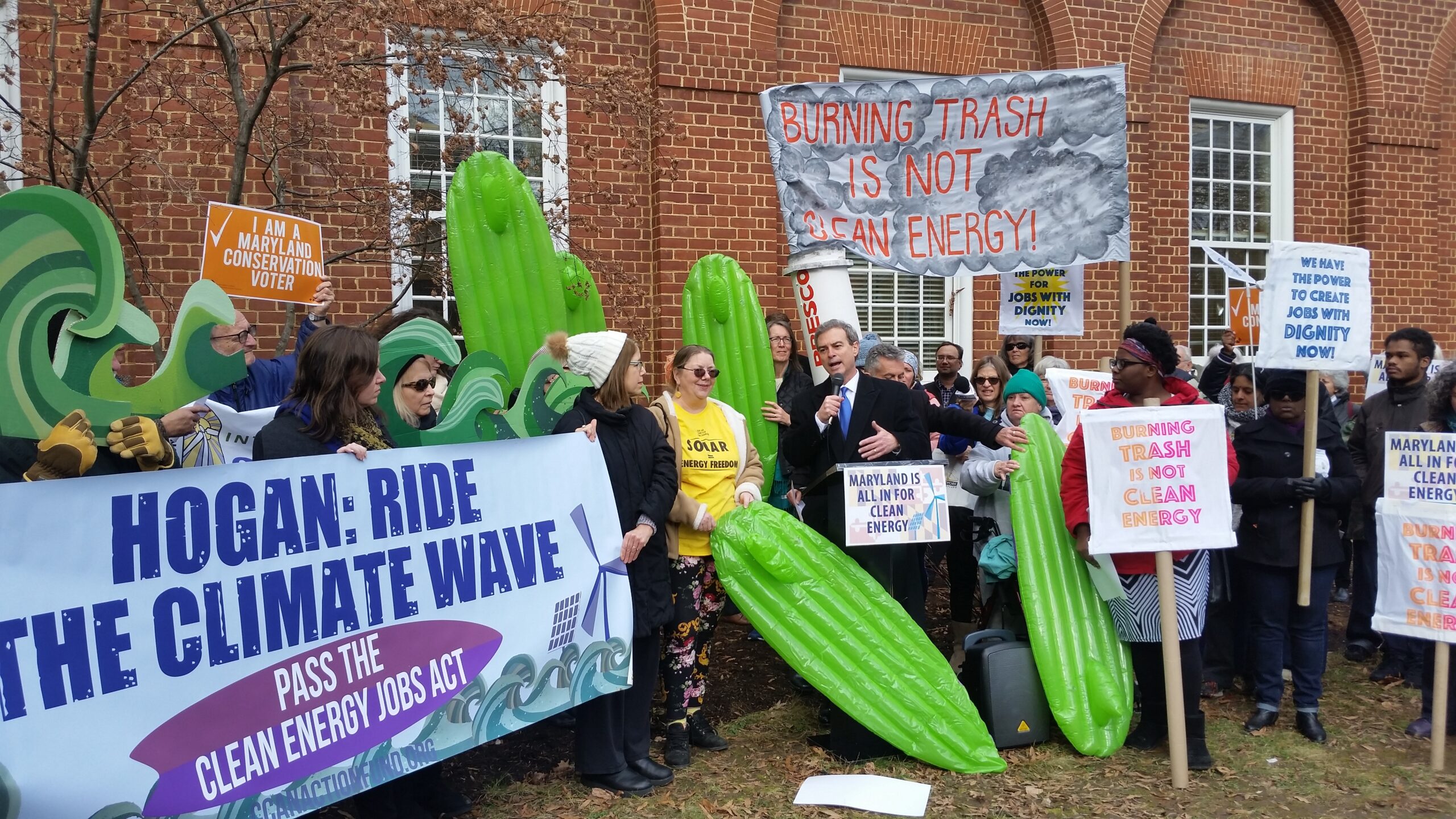Clean Energy Bill Backers Question Delay of Study on Current Standards

As lawmakers prepare to introduce and debate legislation to double Maryland’s reliance on clean energy, they are wondering what happened to a report from Gov. Lawrence J. Hogan Jr.’s administration on the effectiveness of the state’s current Renewable Portfolio Standard.
The preliminary study was due on Dec. 1 – and some advocates of the proposed Clean Energy Jobs Act of 2019 are quietly suggesting the Hogan administration may be “slow-walking” the report.
“My only thought is that what’s in there must be favorable to our state’s increasing its Renewable Portfolio Standard,” said state Sen. Brian J. Feldman (D-Montgomery), the prime Senate sponsor of the measure, who plans to introduce the bill in the next few days.
The official with the Department of Natural Resources who is overseeing the study said the interim report is being finalized “and will be released shortly.”
That sounds simple enough. But nothing is simple between the Republican governor and Democrats in the legislature – and their allies in the environmental movement — when the topic is clean energy mandates.
Although greens believe Hogan compiled a solid environmental record, he vetoed a bill in 2016 that would have set the state’s Renewable Portfolio Standard – the amount of renewable energy that utilities are mandated to use – at 25 percent by 2020. The legislature overrode the veto, and the 25 percent mandate went into effect in 2017.
Now Democrats are back with a bill that would increase the state’s RPS to 50 percent by 2030 – and, environmentalists hope, put Maryland on the path to 100 percent clean energy a decade later.
But the delay with the interim report on the RPS has vexed some lawmakers – and advocates believe it could embolden opponents of the expanded mandate if it isn’t delivered soon.
“I think that’s becoming an issue” with certain lawmakers, said Del. Dereck E. Davis (D-Prince George’s), chairman of the House Economic Matters Committee, which will consider the 50 percent RPS bill.
The report is the byproduct of legislation that passed in 2017, seeking a “comprehensive review of the history, implementation, overall costs and benefits and effectiveness” of the RPS. A preliminary study was to have been delivered on Dec. 1, 2018, with the final report due on Dec. 1 of this year.
The bill tasked the Power Plant Research Program, an entity within the Department of Natural Resources, to conduct the review. Bruce Michael, Resource Assessment Service Director within the DNR, said in an email to Maryland Matters that the agency formed an RPS Work Group consisting of consults and members of the public, representatives of electric utilities, environmental groups, government agencies, and renewable energy companies and trade groups.
“It is important to allow the department and program to complete the legislatively-mandated study over the next year so we can fully examine any emerging issues,” he said. “This will allow PPRP to provide the Maryland General Assembly with a more complete and thorough understanding of how the report that can inform what changes may be necessary to ensure the continued success of the standard going forward.”
Whether that statement provides any clue to the Hogan administration’s thinking on the legislation is hard to say. Hogan has been noncommittal so far. Asked two weeks ago at “The Annapolis Summit,” an annual event sponsored by The Daily Record and other entities, for his view on the bill, Hogan suggested he’d like to see the study results first before committing to a more robust RPS.
“We don’t have any of the facts back yet,” he said.
Hogan reiterated his commitment to boosting clean energy jobs in the state and said, “we have one of the strongest RPS measures in the country, currently.”
In an interview Monday, Mike Tidwell, director of the Chesapeake Climate Action Network, expressed optimism that Hogan would sign the 50 percent RPS bill if it passed. He pointed to a Dec. 11 Washington Post commentary that Hogan wrote with Virginia Gov. Ralph Northam (D), vowing further state action to confront climate change.
“I don’t see him vetoing it after that op-ed,” Tidwell said.
Feldman, the measure’s chief Senate sponsor, who is vice chairman of the Finance Committee, where the bill will be heard, and Senate Minority Leader J.B. Jennings (R-Baltimore County), who serves on Finance, said in separate interviews that the RPS study won’t be that central to the outcome of the debate.
But Jennings conceded: “Depending on which way the report goes, that’ll determine who’s going to use it as an argument.”




 Creative Commons Attribution
Creative Commons Attribution